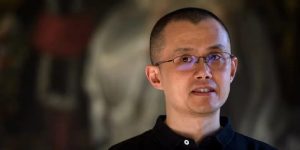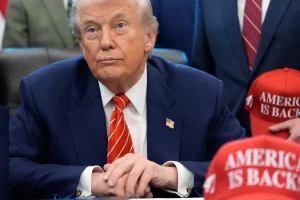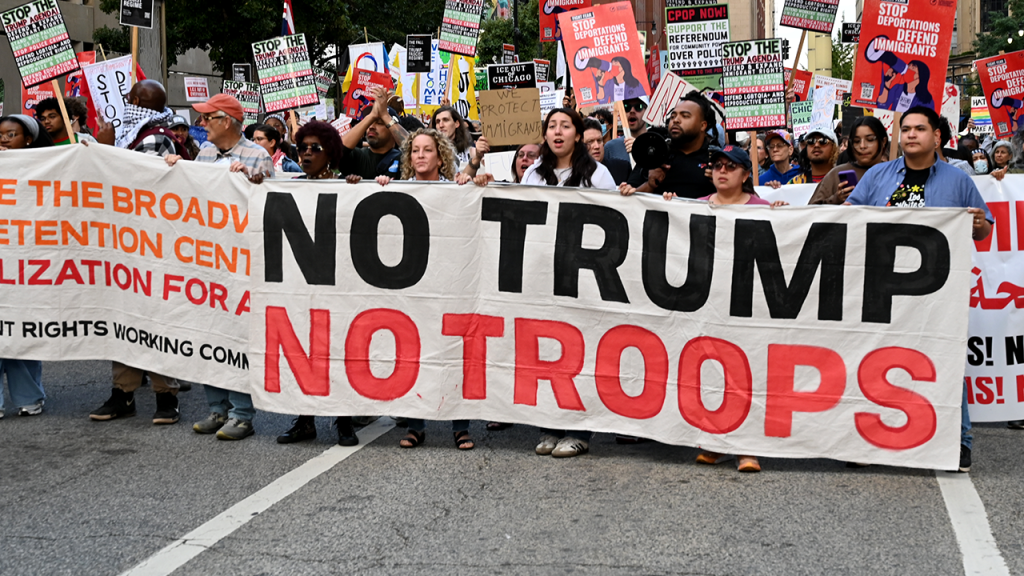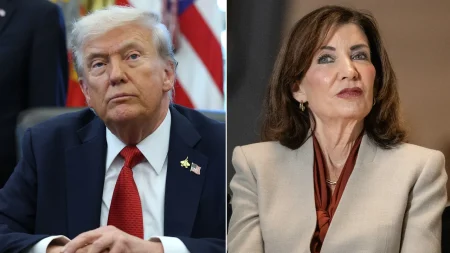Chicago’s Crime Struggle Amid Political Tension with Trump Administration
In the midst of President Donald Trump’s push for increased law and order measures across the nation, Illinois Democratic leaders have drawn a firm line against federal intervention in Chicago. Despite the Windy City’s ongoing police staffing challenges, both Mayor Brandon Johnson and Governor JB Pritzker have rejected Trump’s proposals to deploy the National Guard to address crime issues. The standoff highlights deeper ideological differences in approaches to public safety, with Trump viewing federal intervention as necessary while local officials advocate for community-based solutions. “We’re waiting for a call from Chicago. We’ll fix Chicago,” Trump stated during a recent appearance at the Museum of the Bible, referencing his federalization of Washington D.C.’s police force, which his administration has touted as successful in reducing crime. The president has expressed an “obligation” to protect American citizens, pointing to Chicago’s violent weekend statistics as evidence of the need for intervention. However, Johnson responded firmly during a Labor Day protest, declaring, “No federal troops in the city of Chicago, no militarized force in the city of Chicago. We’re going to defend our democracy in the city of Chicago.”
Chicago’s relationship with crime has been complex, particularly in recent years. While the city has historically grappled with violence, it saw a particularly challenging period after 2020, when waves of shootings, smash-and-grab robberies, and illegal street racing surged across various neighborhoods. Coinciding with these crime increases, the Chicago Police Department experienced significant staffing shortages that began during the same period when “defund the police” protests swept across the nation following George Floyd’s death. The department, which had reached a staffing peak of 13,353 sworn officers in 2019, now faces a deficit of more than 2,000 officers according to city data, with current numbers showing 11,602 sworn members against a budgeted 13,742 positions for Fiscal Year 2025. This shortage has created real consequences for residents, with reports indicating that more than half of high-priority 911 calls in 2023 did not receive immediate responses due to insufficient staffing – a dramatic increase from the 19% of unanswered calls in 2019 when the force was better staffed.
Despite these challenges, city officials point to improving trends in overall crime statistics. Data shows a 21.6% reduction in overall crime as of August 25, 2024, compared to the same period last year. The city’s homicide rate for 2024 stands at approximately 17.4 homicides per 100,000 residents, which, while concerning, remains lower than rates in cities like Memphis, Tennessee, which recorded 40.6 homicides per 100,000 people this year. These improving statistics form part of the basis for local officials’ resistance to federal intervention, with Mayor Johnson asserting that mass incarceration is not the solution to violence. “We cannot incarcerate our way out of violence; we’ve already tried that, and we’ve ended up with the largest prison population in the world without solving the problems of crime and violence,” Johnson stated at a press conference, characterizing such approaches as “racist,” “immoral,” and “unholy.”
The political clash between federal and local authorities reflects broader national debates about crime, policing, and appropriate government responses. Governor Pritzker has characterized Trump’s proposals as pushing “authoritarianism” and has emphasized the state’s own approaches to addressing crime. “I have invested significantly in police, but we’ve also made massive investments in community violence intervention. Those programs are working. We’re doing more than any other state in that regard, and it’s working on the streets of Chicago,” Pritzker explained, highlighting a strategy that balances traditional law enforcement with community-based solutions. The governor and mayor’s offices did not respond to requests for comment regarding current police staffing levels or whether they believe current resources are sufficient to address the city’s needs.
The practical impact of police staffing shortages has been significant for Chicago residents. Since 2020, the 13% reduction in sworn officers has led to increased overtime costs for the department, with expenditures reaching $210.5 million in 2022 – more than a 50% increase from 2021. Reports of unanswered emergency calls have created anxiety among residents, with local media documenting instances where calls for domestic battery, mental health disturbances, car accidents, and active fights went unaddressed because officers were occupied with major incidents elsewhere in the city. These service gaps have fueled concerns about public safety and responsiveness, creating a backdrop for the current political tensions over federal intervention.
As the debate continues, Chicago residents find themselves caught between competing visions for public safety. Over the weekend, protests erupted across the city in opposition to Trump’s proposed crackdown and related immigration enforcement measures. Meanwhile, Trump has shared provocative social media content referencing Chicago, including a meme captioned, “Chicago about to find out why it’s called the Department of WAR.” The president has pointed to his federalization of Washington D.C.’s police department, which has reportedly led to more than 2,000 arrests, as a model for what could be implemented in Chicago. As both sides remain entrenched in their positions, the ultimate question of how to best ensure public safety in Chicago remains unresolved, reflecting broader national divisions over approaches to crime, policing, and the proper role of different levels of government in addressing urban challenges.














